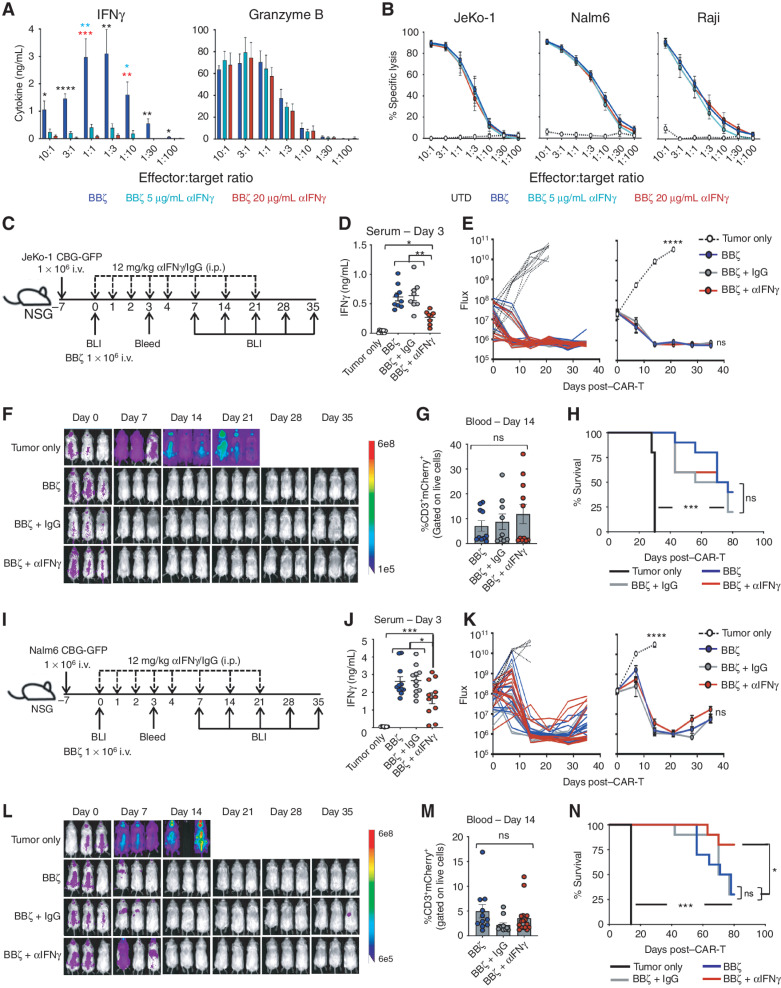Figure 2.
IFNγ blockade does not diminish CAR T-cell efficacy in vitro or in vivo. A, BBζ CAR T cells were combined with Nalm6 tumor cells overnight at various effector:target ratios in αIFNγ-blocking antibody (0, 5, 20 μg/mL), and IFNγ and Granzyme B production was determined by ELISA; n = 5. B, Luciferase-based specific lysis of JeKo-1, Nalm6, and Raji tumor cells by BBζ CAR-T with αIFNγ-blocking antibodies; n = 5. C–H, NSG mice were intravenously injected with JeKo-1 tumor cells and treated with BBζ CAR T cells ± αIFNγ or IgG control antibodies as shown in C. IFNγ expression in serum collected from mice 3 days posttreatment with BBζ CAR ± antibodies (D). Tumor growth was tracked by bioluminescent imaging (BLI; E and F), CAR T persistence in the blood was determined on day 14 post–CAR injection (G), and overall survival was monitored throughout (H). I–N, Experiments described in C–H were repeated using the Nalm6 tumor model. For all experiments, n = 3–5 mice/group; repeated with 3 healthy donors. Data are shown as mean ± SEM with P values by one-way ANOVA or log-rank (Mantel–Cox test) for Kaplan–Meier curves. *, P < 0.05; **, P < 0.01; ***, P < 0.001; ****, P < 0.0001; ns, not significant.

